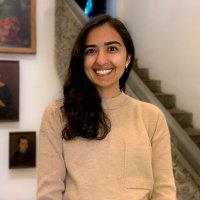
Chenhui Zhang
@danielz2333
Learning about our planet Earth from a Bird's-eye view @mitidss | Prev. @IllinoisCS @IllinoisStat 23' | Remote Sensing & Climate Change | Occasionally LLM
ID: 1328152428
https://danielz.ch/ 05-04-2013 01:41:45
4,4K Tweet
433 Followers
4,4K Following


*Model Merging in Pre-training of LLMs* by Yunshui Li et al. They investigate model merging in the pre-training phase (ie, averaging multiple checkpoints), showing performance comparable to learning rate annealing. arxiv.org/abs/2505.12082





Imagine trying to listen for a whisper in the middle of a rock concert. This is similar to what the LIGO Gravitational wave observatory has to do every day. Today in Science Magazine, our team Google DeepMind shows how AI can help & give astronomers a deeper view of universe.


Official Nano Banana hackathon 🍌 this weekend in SF, $50K in prizes, teams of 1-4, come build with the DeepMind team! Details below 🧵

10 years ago, deep learning was in its infancy. PyTorch didn't exist. Language models were recurrent, and not large. But it felt important: a new technology that would change everything. That's why Fei-Fei Li , Andrej Karpathy, and I started CS231N Staff back in 2015 - to teach the world's

Excited to share an important advance in AI and math. Together with mathematicians from Brown University, New York University and Stanford University, we developed a new AI-powered method that has discovered an entirely new family of solutions to several complex equations in fluid dynamics.



Teaching a new course Stanford University this quarter on explainable AI, motivated by neuroscience. I have curated a paper list 4 pages long (link in comment). What are your favorite papers on explainable AI/mechanistic interpretability that I am missing? Please comment or DM. thanks!


“When only a few have the resources to build and benefit from AI, we leave the rest of the world waiting at the door,” said Stanford HAI Senior Fellow Yejin Choi during her address to the United Nations Security Council. Read her full speech here: hai.stanford.edu/policy/yejin-c…




I am proud to share the announcement about our CodeMender project at Google DeepMind, an agent that can automatically fix a range of code security vulnerabilities. From only a modest-compute run, our agent submitted 72 high-quality fixes to vulnerable code in popular codebases,


Following up on the AlphaEvolve code opt. agent, I am happy to share how our team at Google DeepMind has developed the CodeMender agent to design/apply patches to fix security vulnerabilities in large scale open source projects. #AI4code Read more at: deepmind.google/discover/blog/…








